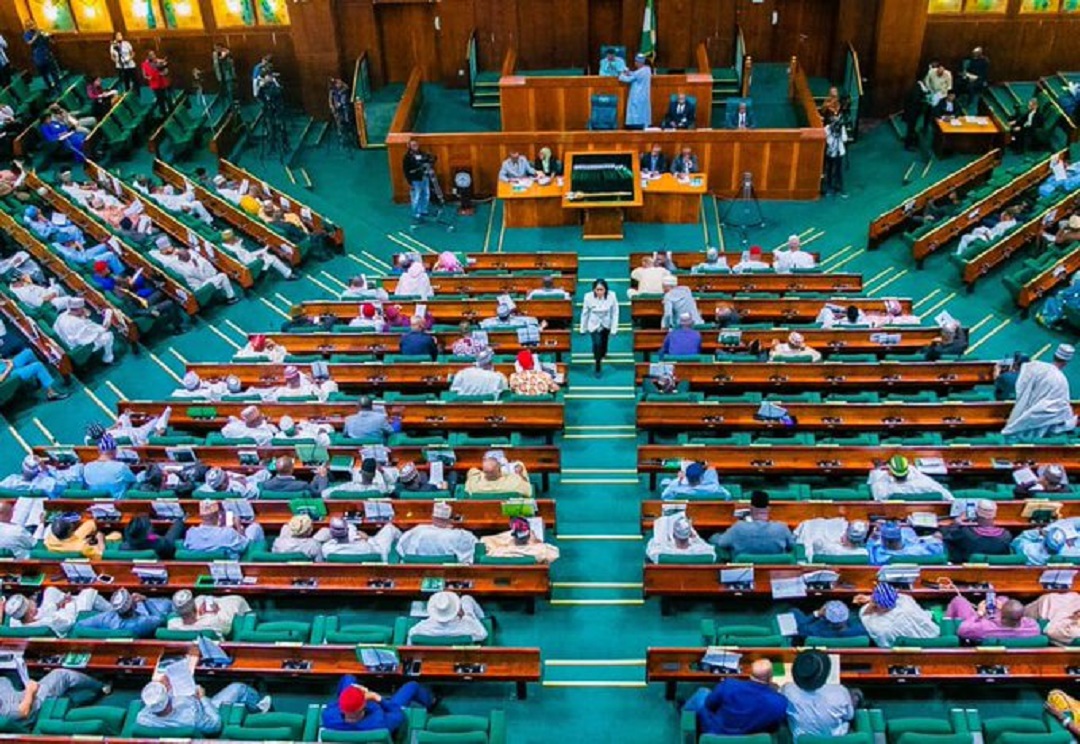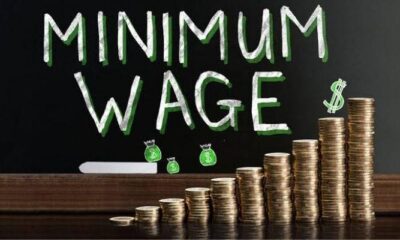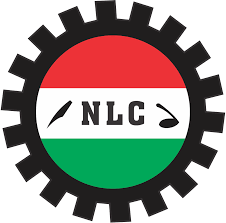News
Fuel subsidy removal: Implement social protection measures to mitigate impact on populace — NACCIMA urges FG
By Omolola Dede Adeyanju
The President, National Chamber for Commerce, Industry and Mines Association (NACCIMA), Dele Kelvin Oye has written to the federal government on implications and suggestions on the current economic reform.
According to the proposal, “The June 2023 edition of the ‘Nigeria Development Update’ of the World Bank revealed that Nigeria has one of the highest inflation rates, that pushed an estimated four million people into poverty between January and May 2023. The inflation has risen to a 17-year high, and has been driven by a number of factors, such as CBN funding of budget deficit, previous multiple exchange rates, devaluation, and trade restrictions. The report further stated that about 7.1 million poor Nigerians would become poor if the Federal Government failed to compensate or provide palliatives for them, following the removal of fuel subsidy. Based on these projections, the number of poor Nigerians will rise to 100.9 million if the government fails to compensate vulnerable citizens for fuel subsidy removal.
”Since there were so many fiscal and monetary policies distortions accumulated in the past, it is normal that the new reforms would be accompanied wide some negative side effects. While NACCIMA agrees that the removal of the oil subsidy and foreign exchange management reforms at the Central Bank of Nigeria (CBN) are crucial measures to begin to rebuild fiscal and monetary spaces for restoration of macroeconomic stability; the immediate impact is however causing increase in prices, which is adversely affecting poor and economically insecure Nigerian households. Consequently, many households are currently resorting to coping mechanisms, such as: not sending children to school; not going to the health facilities to seek preventative healthcare or; cutting back on nutritious dietary choices. These among other consequences justified the need for adequate palliatives to shield Nigerian households from the initial price impacts of the subsidy reform.
”In achieving the Opportunities in the Economic Reforms, It is the position of NACCIMA that the inevitable critical reform agenda of the current administration to address macroeconomic imbalances, equally provides a window of opportunity towards a transformative impact on the lives of Nigerians (individuals and corporate; so that the economy can re-establish a solid foundation for sustainable and inclusive economic growth.
”Certain specific, critical measures to build on the critical reforms include: restoring macroeconomic stability by increasing non-oil revenue; reducing inflation through a sequenced and coordinated mix of trade, monetary and fiscal policies, and completing them with foreign exchange reform; expanding social protection to protect the poor and most vulnerable, and developing and communicating how, as fiscal space recovers, resources will be redirected over time to meet urgent development challenges affecting the country.
”In order to implement such a comprehensive reform package, NACCIMA proposes a range of complementary measures, including a new social compact to protect the most vulnerable in the public and private sectors of the economy so as to maximize the collective impact on growth, job creation, and poverty reduction are necessary.”
The President noted that a national awareness campaign is essential for gaining public understanding and support for the elimination of petroleum subsidies as well as other preform programs.
“Such sensitisation should transparently communicate the rationale for the removal, the potential economic gains, and the government’s strategy to alleviate the immediate hardships faced by the poor and vulnerable, thereby helping to anticipate the type of backlash and protests observed during previous attempts to remove subsidies.”
He stated, “However, an important key to gaining the public’s trust in the government reform agenda is for the government to be transparent and accountable for the money saved by removing subsidies. The government must equally assure Nigerians that the end of subsidies is not merely a matter of policy; but a necessary step towards a more sustainable and prosperous future. This can be accomplished by demonstrating that the funds previously allocated to petroleum subsidies are now invested in directly beneficial public goods and services such as healthcare, education and infrastructure. In doing this, the government should collaborate with multiple stakeholders, such as labour unions and civil society organizations; as they exert considerable influence over public opinion, and their endorsement of subsidy elimination, among other programs could significantly contribute to its adoption by the public.
“Clearly there is the need for further oil sector reform to increase local production and reduce Nigeria’s reliance on imported refined petroleum This could contribute to the long-term stability of petroleum prices, mitigating the economic impact of the subsidy elimination. The recent opening of Dangote Refinery, the world’s largest single-train refinery, is a promising development, although it may not have an immediate impact on prices of fuel in Nigeria.
“In addition, the government should consider implementing social protection measures to mitigate the impact of the subsidy elimination on the vulnerable. These may include cash transfers, essential goods and services subsidies and job creation initiatives. With the petrol subsidy removal among other reforms, the government is expected to achieve fiscal savings of approximately N2 trillion in 2023, equivalent to 0.9 per cent of GDP. These savings are expected to reach over N11 trillion by the end of 2025. Therefore, compensating palliatives from such savings will be necessary to help shield the vulnerable in the economy (public, private and individuals).”
He added, “NACCIMA believes that the removal of fuel subsidies in Nigeria is an urgent and crucial move towards economic sustainability and prosperity. However, it must be managed through a holistic approach that includes public awareness campaigns, stakeholder engagement, sector reform, and social protection initiatives. This reform is a unique opportunity to free the country from the economic burden of the fuel subsidy regime and embark on a path towards a brighter and more prosperous future. In addition, implementing appropriate palliative measures will help to cushion the possible negative effects of the reforms and stimulate growth in the economy.
“To this end, the Federal Government should engage with the NACCIMA and other private sector organizations in developing a comprehensive plan to support businesses and mitigate the effects of the current economic challenges.”
News
JUST IN: Student loan application portal opens May 24


The Federal Government, through the Nigerian Education Loan Fund, on Thursday night announced that May 24, 2024, was the official date for “the opening of a portal for student loan applications,” a statement signed by the media lead of the Fund, Nasir Ayantogo said.
Ayantogo, in a statement, said the opening of the application portal marks a significant milestone in the commitment of President Bola Tinubu to” fostering accessible and inclusive education for all Nigerian students.”
On June 12, 2023, Tinubu signed the Access to Higher Education Act, 2023, into law to enable indigent students to access interest-free loans for their educational pursuits in any Nigerian tertiary institution.
The move was in “fulfilment of one of his campaign promises to liberalise funding of education,” a member of the then Presidential Strategy Team, Dele Alake, said.
The Act, popularly known as the Students Loan Law, also established the Nigerian Education Loan Fund to process all loan requests, grants, disbursement, and recovery.
Although the government initially announced that the scheme would be launched in September, it suffered several delays, leading to an indefinite postponement in early March.
The Presidency had linked the delay to Tinubu’s directive to expand the scheme to include loans for vocational skills.
After receiving a briefing from the NELFUND team led by the Minister of State for Education, Dr Yusuf Sununu, on January 22, the President directed the Fund to extend interest-free loans to Nigerian students interested in skill-development programmes.
Tinubu based his decision on the need for the scheme to accommodate those who may not want to pursue a university education, noting that skill acquisition is as essential as obtaining undergraduate and graduate academic qualifications.
“This is not an exclusive programme. It is catering to all of our young people. Young Nigerians are gifted in different areas.
“This is not only for those who want to be doctors, lawyers, and accountants. It is also for those who aspire to use their skilled and trained hands to build our nation.
“In accordance with this, I have instructed NELFUND to explore all opportunities to inculcate skill-development programmes because not everybody wants to go through a full university education,” he had said.
Through the portal, students can now access loans to pursue their academic aspirations without financial constraints.
The portal, according to the statement, provides a user-friendly interface for students to submit their loan applications conveniently.
“We encourage all eligible students to take advantage of this opportunity to invest in their future and contribute to the growth and development of our nation.
“Students can access the portal on www.nelf.gov.ng to begin application,” the statement said.
News
Reps threaten cancelation of PPP and concessions in transport ministry


The House of Representatives Committee on Public Assets has issued a stern warning to cancel all Public-Private Partnership (PPP) agreements and concessions within the Federal Ministry of Transport.
The announcement came during a session in Abuja where the committee interrogated officials from the ministry, led by Permanent Secretary Pius Oteh.
Chairman of the Committee, Rep. Ademorin Kuye, expressed dissatisfaction with the lack of compliance with existing laws in the PPP and concessions agreements, particularly concerning the Nigeria Railway Corporation (NRC) and the Railway Property Management Company Limited (RPMC).
Kuye stated that non-compliance with extant laws could lead to the cancellation of these agreements.
Oteh also told the committee that the ministry has over 170 leases but was unable to provide the relevant documents as required by the lawmakers to prove whether there were compliance with the extent laws.
One of the required documents is the receipt of payment which the lawmakers said was not attached to the documents submitted by the ministry in disregard to their request.
The committee in its resolution invited the Minister of Transport, Chief Executive Officer of Nigeria Railway Corporation and other relevant organisations to appear on their next sitting.
“As you may be aware, this committee will not hesitate to invoke the relevant constitutional provisions if any head of ministry, agency or department fails to honour the invitation of this committee.
“We can issue an arrest warrant and direct the relevant security agencies to bring such person here,” he said.
He noted that improper management of government assets through public Private Partnership and Concessions has been one of the major challenges in infrastructure development.
It would be recalled that the House of Reps through its resolution in Feb. mandated the committee on Public Assets and Special Duties to probe Public-Private Partnership initiatives and concession agreements across the country.
The committee noted that in spite of initiating several PPPs and concession programmes, the outcomes have been mixed, with some projects stalled and others failing to yield anticipated results.
News
Edo election: INEC fixes May 27 to start distribution of PVCs


The Independent National Electoral Commission, INEC, in Edo State, will begin the distribution of about 373,030 uncollected Permanent Voter Cards, PVCs on May 27.
The state Resident Electoral Commissioner, REC, Anugbum Onuoha, made this known in Benin on Thursday, during a stakeholders’ meeting on the forthcoming Continuous Voter Registration, CVR, exercise.
Onuoha stated that the PVC collection exercise would be done side-by-side with the CVR exercise, also scheduled for May 27.
INEC Chairman, Mahmood Yakubu, had announced to begin the CVR exercise in Edo and Ondo ahead of the governorship elections in the two states.
Onuoha says while the statistics of registered voters in Edo is 2,501,081, collected PVC is 2,128,288 and uncollected PVCs stand at 373,030.
He said both the CVR and the PVC collection would be a 10-day exercise, starting from May 27 to June 5, from 9.00 a.m. to 3.00 p.m. daily, including weekends.
The REC explained that the exercise would be conducted in the 192 wards and the state headquarters of INEC in Edo.
He also disclosed that each registration centre would be managed by two officials drawn from the commission and the National Youth Service Corps, NYSC.
“In addition to the registration of voters, the commission will also make available the uncollected PVCs for collection during CVR.
“Also note that no PVC will be collected by proxy. Registered voters should come in person to collect their cards.
“There will be no pre-registration option because of time constraints,” he said.
Onuoha, however, appealed for the support of the media, Civil Society Organisations, CSOs, traditional rulers and religious leaders in encouraging voters to locate and pick up their PVCs.
According to him, the commission has published the final list of candidates for the Edo governorship election following the conclusion of primaries of the political parties.
-
Finance4 months ago
Court orders Sen. Victor Umeh to repay N136m bank debt to AMCON
-



 Abuja Update3 months ago
Abuja Update3 months agoUNDP, FG partnership needed to achieve inclusion, equity- Minister
-
capital market2 years ago
Rt.briscoe, FBNH, Others halts negative performance of stock market
-
Abuja Update2 months ago
Banks drive stock market performance with N147bn gain
-



 Health1 month ago
Health1 month agoCapacity training will reduce migration of health workers- NPHCDA
-



 Business3 weeks ago
Business3 weeks agoTingo Group unveils Tingo Electric, Tingo Cola drink at Lagos launch
-
Submission Guidelines4 months ago
CALL FOR SUBMISSIONS: POETRY COLUMN-NND
-
News4 months ago
Oil thieves sponsoring malicious media campaign against Navy – Spokesman
















